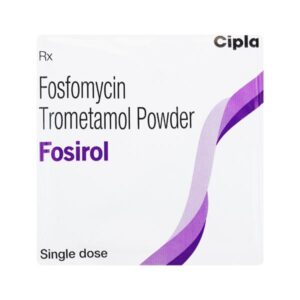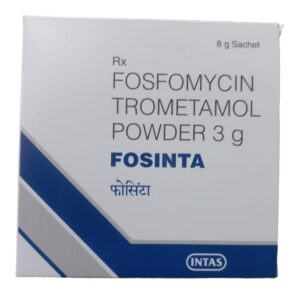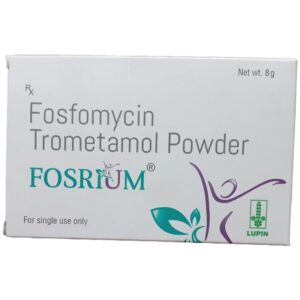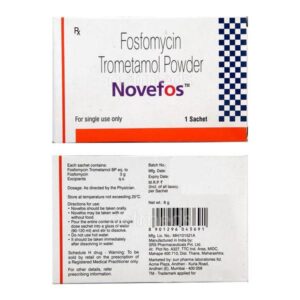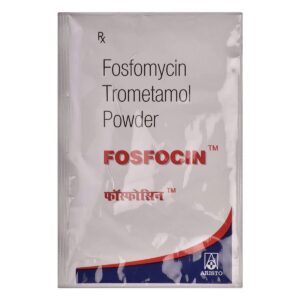FOSFOMYCIN
FOSFOMYCIN: Fosfomycin is an antibiotic drug that is used to treat urinary tract infections (UTIs). It is specifically effective against bacteria such as Escherichia coli (E. coli) that commonly cause UTIs.
The mechanism of action of fosfomycin involves inhibiting an enzyme called enolpyruvyl transferase, which is responsible for cell wall synthesis in bacteria. By inhibiting this enzyme, fosfomycin disrupts the formation of the bacterial cell wall and ultimately leads to bacterial death.
Fosfomycin is available in both oral and intravenous formulations. The recommended oral dose for uncomplicated UTIs in adults is typically 3 grams taken as a single dose, while the intravenous form is used for more severe infections or when oral administration is not possible. The dose may vary depending on the severity of the infection and the individual patient’s health status, so it is important to follow the instructions provided by a healthcare professional.
As with any medication, fosfomycin can cause side effects. The most common side effects include gastrointestinal symptoms such as nausea, diarrhea, and abdominal pain. Less commonly, allergic reactions may occur, leading to symptoms such as skin rash, itching, and swelling. Other possible side effects include headache, dizziness, and vaginal yeast infections in women.
It is important to note that fosfomycin is generally considered safe and well-tolerated. However, it is always recommended to consult a healthcare professional before starting any new medication to get personalized advice and guidance based on individual circumstances.

